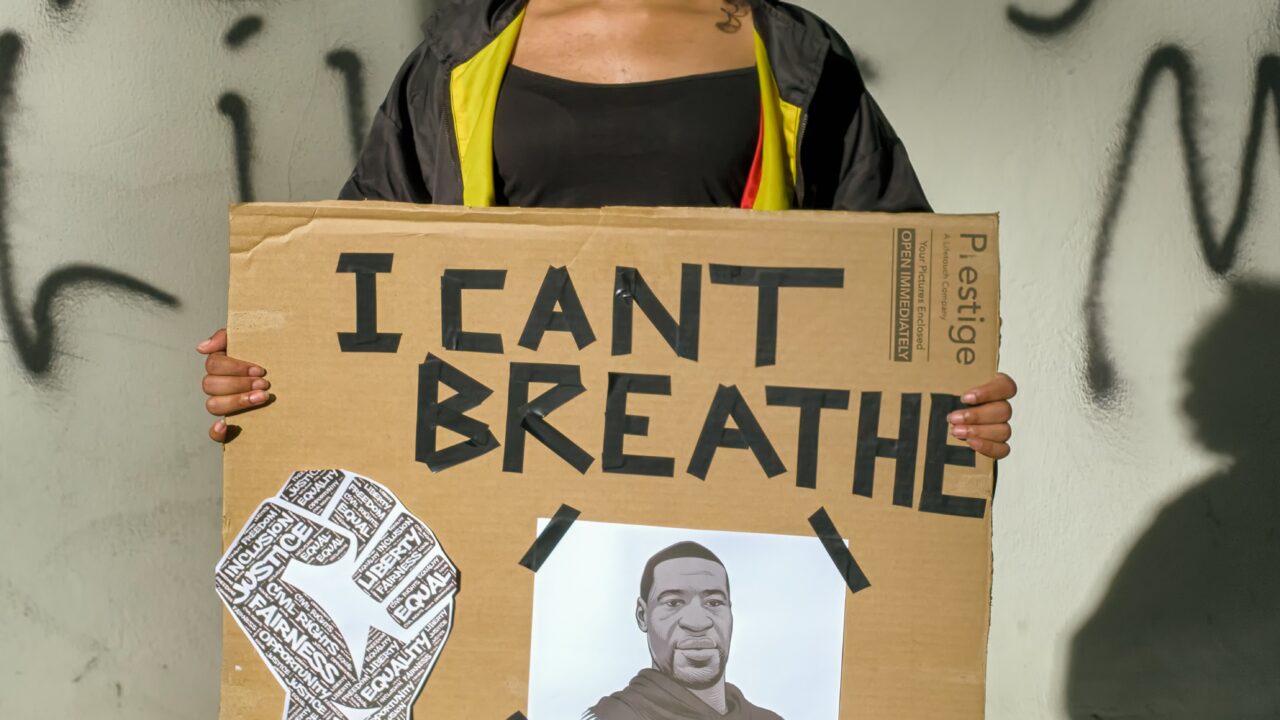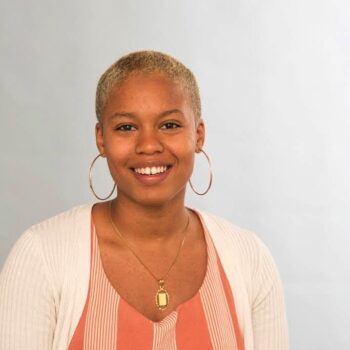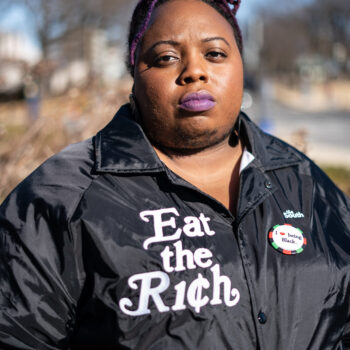“I feel like I’ve always been involved in the work of imagining what anti-oppression looks like for Black people,” Tynetta Hill-Muhammad recounted, “but also have not always had the tools, languages, and skills” to do so. Hill-Muhammad began organizing with the Black student union on her college campus, where she led a successful political education program. But she soon realized that her skills and passion lay in base building. At a 2014 protest against the murder of Laquan McDonald by police, BYP100 — a member-based organization of Black youth activists — stood out. “They’re moving the crowd, they’re making sure people are safe. They’re doing the chant leading,” she remembers. “I was so amazed, in awe, and in love.” She now serves as the Chapter Organizer for the organization’s Chicago branch. Hill-Muhammad sat down with Makia Green, the co-director of Harriet’s Wildest Dreams and the Organizing Director for DC Working Families Party, to talk about why she sees young people as the foundation of the abolitionist movement, the work BYP100 does to transform the personal into the political, and the challenges and opportuniteis of working cross-generationally. The interview has been edited and condensed.
What do you think is the role of young people in the abolition movement?
Young people are, in so many ways, the foundation of the abolitionist movement. We talk in an abstract way sometimes about the school-to-prison pipeline. But abolitionist principles can be formed in children. They can recognize that those systems are there to tear them down and make them not feel empowered and have the self-esteem that they need in order to create the world that they need, that they’re trying to envision for their children.
Even when we think about youth — that age that BYP defines [as] 18 to 35 — a lot of folks who have upheld movement spaces have been youth. They have been forerunners, they have been innovators, they’ve been creators. They’ve been sustainers of the movement that we have currently and the movements that have come before. The only good base building you can have is by investing in youth. Of course, we invest in everyone, of course we invest in our elders. We invest in growing every single person. But [young people] are the folks that are going to carry us on past our own lifetimes, past our own ancestry.
How does BYP100 go about building a base of young people?
A principle that exists within BYP100 is recognizing that we don’t speak for all Black people. We hear people’s stories, but we don’t take their stories; we take the lessons from their stories. And I think BYP builds a base with young people by allowing those young folks to have their stories heard, creating the space for young Black folks to be centered and recognized and valued. The best practice that we have in developing youth leadership is through providing access to resources and educational spaces about what it means to take the personal and make it political. And then, after understanding what that looks like in your mind, giving you the tools, the resources, and community to feel empowered talking to your neighbors, feel empowered by the ability to interrelate with other folks and bring folks further towards a radicalization.
We do this through a Black queer transnational abolitionists lens. By having that lens, we create an opportunity for folks who don’t feel safe or comfortable in being their most Black radical self. We commit to loving and protecting them. I’m a non-binary woman. It took a lot for me to understand that that is who I am and how I want to show up in the world. And by me being able to understand who I am, I have been able to grow myself as a leader. With the Black feminist lens, we’re able to grow folks into leadership because we are creating space for folks to know that they are safe, know that they are loved, and know that they can have all the opportunity to develop their own fullest self and bring that into their leadership.
What are the biggest challenges in this work?
The biggest challenge is that the world is hard. And I think that people see the changes, they see how the world grows, they see how common sense is shaped through the work of youth organizers. I don’t know if everyone sees the labor that is emotional and physical and spiritual, that taxes young Black queer people. Young Black queer folks are in many ways holding this visioning of a world where they can be their best selves. And so the biggest challenge is the fatigue, the capacity.
[But] the biggest success is the radical honesty, is the radical ability to feel like you can be your best self. The softness that we bring to one another. I have been in spaces where I felt so fatigued, so tired, like, this is so much, are we ever going to get free? And then I remind myself that there are young people who are around me who have seen more freedom than I may have seen and that my parents may have seen. And so I know that the work that people are doing is going to create freedom. I know that it’s going to create freedom.
Do you work cross-generationally? Can you talk a little bit about any challenges and opportunities of cross-generational movement work?
BYP includes alum members. Those are folks who have aged out. They are trainers and mentors and people who have history and understandings that newer members may not have. [We also] make an opportunity for those who are younger than 18 through our squad membership. So you can become a squad member and then eventually age into BYP at the age of 18.
The challenges that I see with cross-generational work is ideas on both of [ends of the] spectrum. [Older folks will say] young people don’t want to do anything. I hear that all the time. And on the other end, it’s these seasoned folks [who] don’t want to hear us out. They’re stuck in their ways and they don’t have any understanding of what we’re going through, and the reason why we’re going through these things is because of them. I think the biggest challenge is bringing people together across their differences, primarily in age, and then also expanding folks’ horizons.
What is your vision for the next 10 years?
I hope to be working within BYP100 in some capacity. However, it is my dream that we are outside of the United States. There are multiple chapters across the world. Abolition becomes a part of people’s everyday train of thought. Understanding and recognizing the fact that we are in a climate crisis becomes a topic of conversation and processes are implemented to stop and reverse that. And reparations is a conversation that we laugh about and we go like, oh my gosh, we all got what we need. Everyone gets their needs [met]. That’s my ten-year vision. My hope is that that vision becomes a reality and it is my work and my duty to make that a reality as well.
What is the role of young people to get us there?
The role of young people is making sure that they know that their voices can be and should be heard and that they are valuable, that their lives are valuable, Black lives are valuable, and queer lives are valuable — and that they can be centered and heard and empowered in a way that they need to be. And they can move work and create work, and not in the capitalist sense, but they can create an environment of appreciation and growth for one another.


